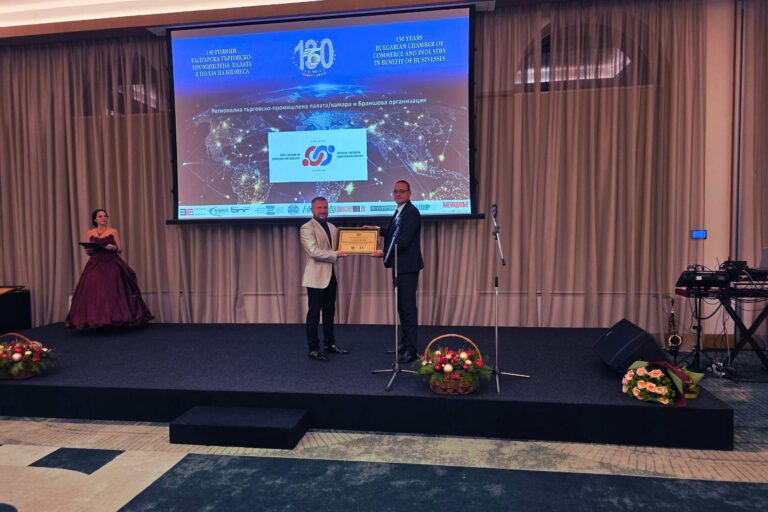Analysis of the Eurochambres Economic Survey 2025 Results: What Lies Ahead for European Businesses in 2025
The Ruse Chamber of Commerce and Industry, in cooperation with the Bulgarian Chamber of Commerce and Industry (BCCI), took part in organizing this year's Eurochambres Economic Survey 2025 (EES2025) – the largest economic survey on the business climate in Europe. This initiative brought together almost 42,000 companies from 27 European countries, including Bulgaria, in order to assess the economic outlook and the main challenges for business in 2025.
Key Trends for the European Economy
The results of the EES2025 show moderate optimism, but also serious challenges for European companies. Here are some of the key takeaways:
- National Sales: Businesses expect stability in national sales, but the lack of a significant increase highlights weaknesses in consumer demand. High inflation continues to limit purchasing power, especially in the service and trade sectors.
- Export: Despite moderate growth expectations, export levels still fall short of pre-pandemic levels. For Bulgaria, exports remain an important factor for economic growth, with exporters facing difficulties related to international competition and transport costs.
- Investments: Businesses have shown reluctance to invest, mainly due to high interest rates and political uncertainty. This particularly affects small and medium-sized enterprises, which are the main engine of the European economy.
- Occupation: The lack of qualified personnel is a major problem for businesses, with companies having difficulty recruiting suitable employees. In Bulgaria, this problem is particularly acute in the industrial and technological sectors.
- Business Trust: Although slightly improved, confidence in the economic outlook remains below long-term levels. This highlights the need for a stable regulatory and economic environment.
Top Challenges for Businesses in 2025
The study identified several key factors that will continue to influence business development in Europe:
- Labor costs remain a leading challenge.
- The lack of qualified personnel is an obstacle to expanding the activity.
- The regulatory burden makes it difficult to adapt to dynamic economic conditions.
Bulgaria: Local Context
For Bulgaria, the survey results are similar to European trends, with some specific features:
- Companies expect a slight increase in domestic and export sales, but growth is uncertain.
- Investment activity remains at a low level, despite the availability of European financing programs.
- Lack of staff and administrative obstacles continue to be major barriers to growth.
Conclusion and Recommendations
EES2025 provides valuable data on the business environment in Europe and Bulgaria, which can help to better plan companies' strategies. An important role in overcoming these challenges is played by regional business communities and institutions such as the Ruse Chamber of Commerce and Industry, which support companies through consultations, training and international partnerships.
How to Leverage the Results?
Companies can use the results of EES2025 as a basis for developing strategies to address key challenges and to more effectively plan their future investments and operations.
For additional information or consultations, you can contact us at info@rcci.bg or +359 82 825 875.






